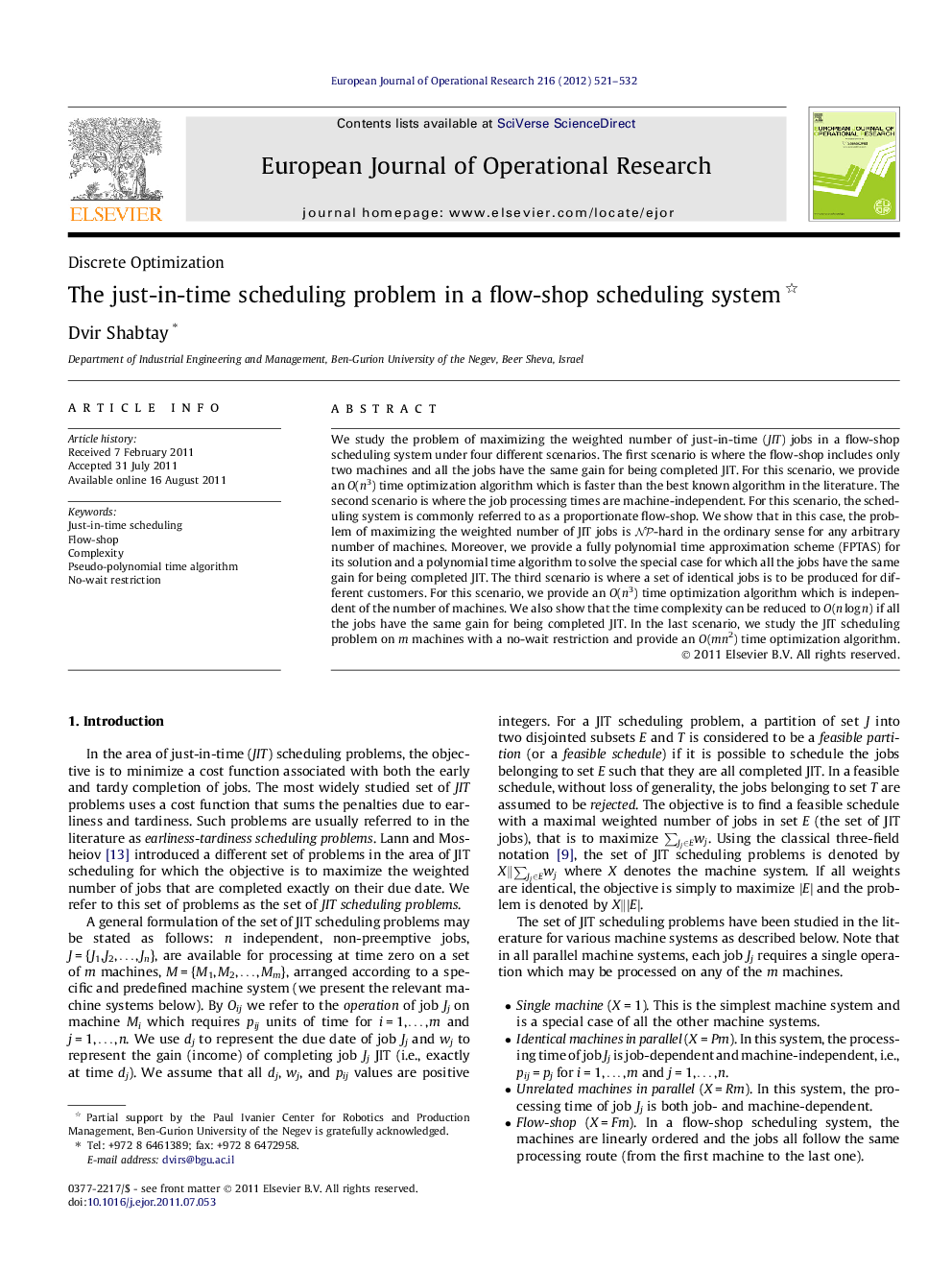| Article ID | Journal | Published Year | Pages | File Type |
|---|---|---|---|---|
| 480604 | European Journal of Operational Research | 2012 | 12 Pages |
We study the problem of maximizing the weighted number of just-in-time (JIT) jobs in a flow-shop scheduling system under four different scenarios. The first scenario is where the flow-shop includes only two machines and all the jobs have the same gain for being completed JIT. For this scenario, we provide an O(n3) time optimization algorithm which is faster than the best known algorithm in the literature. The second scenario is where the job processing times are machine-independent. For this scenario, the scheduling system is commonly referred to as a proportionate flow-shop. We show that in this case, the problem of maximizing the weighted number of JIT jobs is NPNP-hard in the ordinary sense for any arbitrary number of machines. Moreover, we provide a fully polynomial time approximation scheme (FPTAS) for its solution and a polynomial time algorithm to solve the special case for which all the jobs have the same gain for being completed JIT. The third scenario is where a set of identical jobs is to be produced for different customers. For this scenario, we provide an O(n3) time optimization algorithm which is independent of the number of machines. We also show that the time complexity can be reduced to O(n log n) if all the jobs have the same gain for being completed JIT. In the last scenario, we study the JIT scheduling problem on m machines with a no-wait restriction and provide an O(mn2) time optimization algorithm.
► We study several variants of the problem of maximizing the weighted number of JIT jobs in a flow-shop scheduling system. ► We show that the unweighted version of the problem on two machines is solvable in O(n3) time. ► We show that the problem is ordinary NP-hard even if the processing times are machine-independent. ► We show that the case of job-independent processing times is solvable in polynomial time. ► A polynomial time solution is provided for the problem under a no-wait restriction.
